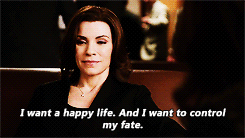I think I was 17 when a friend told me that she doesn’t call me anymore because I never make a call, it is always her taking the initiative. I knew she was right but I could not discern if it was significant enough to warrant that disappointment that I had earned from her. It is now that I understand that it was enough back then and that it has always been enough to cause dismay to my friends. Why I write about this today? I read an old chat with a friend a couple of days ago and it surprised me to see the kind of intimacy that I shared with her and it surprised me further to register how only little of that intimacy remains.
I cannot keep in touch. It is one of my worst traits- I am extremely inept at keeping in touch. Let’s say I am working at a place ‘S’ where I meet ‘A’. Over time I come to share a good rapport with the three of them. We’re quite frank with each other and we always keep each other in the loop, even outside office hours. Then A leaves or I leave, We’ll talk to each other, maybe a little less frequently than earlier but we’ll keep each other acquainted of the happenings of each other’s days. Then the conversations drop to once a week, eventually once a month and then once a couple of months with the mandatory annual birthday conversation.
What happens is that once you take me out of the set up where I meet these people I find it complex to sustain these conversations. It is as if the set up is what holds everything together- we have so much in common to talk about, a certain instance, a certain person or a certain development and as soon as when one of us moves out that commonality begins to diminish systematically. That is when the struggle begins in my head. I cannot think of things that we can talk about. At times, I find it incredulous that someone would engage in a conversation with me over the mundane developments of my my life. Besides, my life is pretty much the same since 2014, except moving to Bangalore for a year and coming back home broke, fat and unhappy there is very little that has shown any progress. In fact, I believe whatever that has changed is in response to how everyone’s life has evolved around me. So what am I really going to tell the other person that nothing is changing. What complicates things further is when I don’t share any hobbies/interests with a friend. That leaves me with practically nothing to speak about and given that I am an introvert who likes to know her conversations before venturing into them and hence minimal inclination to make the call.
The second aspect to this is that I don’t balance between situations and people well. My attention/focus is restricted to my immediate surroundings and the people sharing the surroundings with me. Remember the friend I spoke about in the beginning of the post, I like her as a friend and I wasn’t deliberately avoiding her. In my mind, I was spending 5-6 hours with her everyday at school and that seemed enough to me. Once I was home my attention was completely committed to my home. I could spend the day chit chatting with my grandmother, watching television with my parents or in wishful thinking with my brother, with no time left in my hand to commit to someone else. That has always been the pattern with me. It is an exception for something/somebody outside the domain of my surroundings to command my attention.
Sometimes I believe that I make a better 4 am friend than a normal friend. I may not be the best for regular chatter but if anyone who I’ve known as a friend tells me that they are in trouble, I try to comfort them in any way that I can. I understand that the less I talk to a person, the less likely they are to approach me if they are in a problem. As a matter of fact, even I wouldn’t make the call, if I were in their place. But if they do, I am there to hear them out. And I am not saying this to convey any largess on my part but to point out that I do not perceive friendships in the light of the number of times we have engaged in small talk. If someone has been good to me, I value that relationship and I will try to be there when someone needs support in whatever small way that I can be keeping the limitations of my personality in mind. But obviously I fail in conveying this and I fail in delivering what the other person expects off of me. I get a sense of my failure when things do not go smooth the time I talk to someone after a hiatus.
You know how we’ve always been told that it is difficult to make friends in your 20’s. I never believe in such generalizations but now that I see myself I find some merit in the statement. Why I say this, you may wonder. Because I am less likely to oblige to something a friend asks me to be a part of than I was say, let’s say 5 years ago. I will place my comfort first. Like, if a friend invites me for a party with a bunch of strangers, I am going to say no because crowds overwhelm me. If a friend calls me over for drinks, I am going to say no because I do not drink, not even the casual I am doing it for the sake of socializing drinking. If a friend proposes that we go clubbing, I am going to say no because I don’t enjoy dancing. If I have little to gain and more to lose in terms of my sense of comfort I am going to say no. I am less open to an unfamiliar set up especially if I believe that it has a potential of making me feel awkward. I have become rigid over the years and this rigidity does not sit down well with others.
I have come to realize that I am too much of ‘on my own terms’ kind of a person and when I am being this person I end up hurting a lot of people even with no intentions to do so. When I continue to fall short on what a friend expects out of me, they are going to feel wronged, and they are not wrong because who needs a friend who is only conditionally available. I believe my friendship resonates most with the song ‘Man aamadeh am‘ from Coke Studio. It is an ode to coming back to your loved one and yet it ends with with how the spins of time turn loved ones to strangers. Estrangement is as natural as the passage of time and no matter how much you want to yet you fail to hold people back. Here’s an excerpt from the song.
waqt hansaaye
Time makes us laugh
gale lagaaye
It offers comfort
tere mere sab dard miṭaaye
It erases all our hurtsrokna chaahoon thaamna chaahoon
I try to hold on it, I try to capture itret kisi ke haath nah aaye
But sand always slips through our fingers
rang bhar doon
Shall I fill it with all the colours of my feelings?
ya rahne hi doon
Or shall I just let it remain as it is?kaise hue mere apne paraaye
Why did my loved ones suddenly become strangers to me
This was my story of being a terrible friend. Tell me about yours- how have you disappointed a friend or have you been disappointed by a friend.
The image has been sourced from Flickr.























